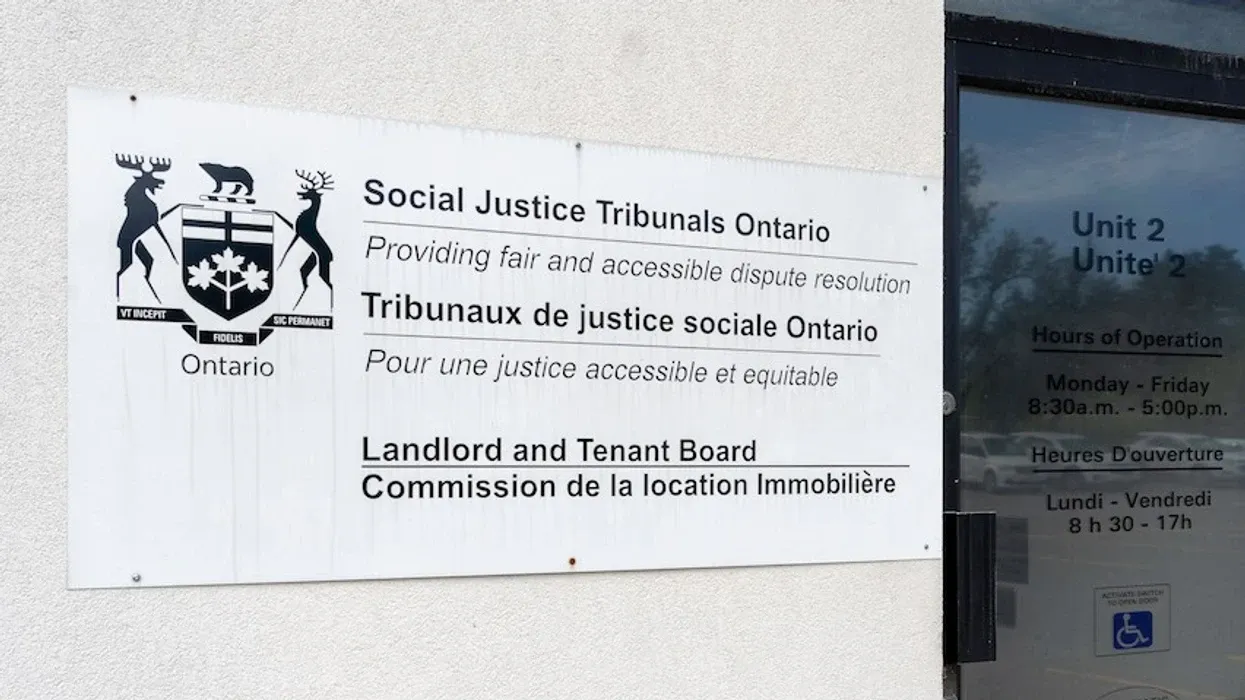It seems that Toronto landlords are handing out eviction notices readily this year.
Veronica Spada, a spokesperson for Ontario’s Landlord and Tenant Board (LTB), tells STOREYS that there have already been 1,767 L2 applications based on N12 notices (eviction notices on the basis of personal use) filed for Toronto addresses between January and September of this year. In contrast, just 1,312 L2 Applications based on an N12 were filed over the entirety of 2022.
Year to date, data from the LTB also shows that L2 applications based on N12s are up close to 80% compared to the first nine months of 2022.
Although the LTB opted not to disclose how many of those applications are in bad faith, there is reason to believe that there is a profit motive behind at least some of those N12 notices — something that housing advocates attest to anecdotally. Ontario’s rent control rules dictate that rents for units first occupied prior to November 15, 2018 can only be raised by a provincially-mandated amount. Units occupied after that November 15, 2018 cut-off aren’t subject to rent controls. So as tenants turn over, there’s really no limit to how much those landlords can raise rents.
Meanwhile, Toronto touts one of the most lucrative rental markets in the country for landlords, with the asking average rent clocking in at $2,902 in September, per the latest national rent report. Even studio apartments and roommate accommodation in the city are renting at a premium: $2,107 and $1,308, respectively, on average.
Wait Times Have Improved, Says LTB
Around this time last year, the LTB revealed to STOREYS that a five-month moratorium on eviction hearings from March to August 2020 — around 25,000 prospective hearing slots were lost during this period — had resulted in a backlog of cases. As a result, it was taking as long as two years for hearings to be scheduled, according to a report from May prepared by Ombudsman Paul Dubé.
Now, says Spada, most new and adjourned matters are currently being scheduled, on average, within seven to eight months.
Although that's still a far cry from the 25 to 30 business days that the process is intended to take (according to information previously available on the Tribunals Ontario website), it's still a marked improvement. Government funding is, in large part, to thank, says Spada.
Late last year, the province announced that it would be infusing $1.4M into the LTB to help the adjudicative tribunal hire over 35 additional operational staff, improve scheduling and the client experience, issue decisions and orders faster, and catch up with its tremendous backlog. In addition, just this past spring, the provincial government announced another $6.5M investment — again, to allow the LTB to bring on an additional 40 adjudicators as well as back office staff members to “improve service standards and continue to reduce active applications and decision timeframes.”
As intended, these infusions have allowed the LTB to increase the number of adjudicators on staff. Since May 2023, the Board has brought on 23 new full-time adjudicators, 16 new part-time adjudicators, and one part-time vice-chair.
“These appointments bring the Board’s adjudicative complement to 59 full-time and 54 part-time adjudicators, with additional appointments expected before the end of October,” says Spada. “We are making real progress to fully utilize the resource allocation provided to us by the government.”
Even so, it’s not business as usual, per se, at the LTB. Spada notes that the Board's active case count “continues to be higher than ideal,” pointing to a 25% uptick in the number of applications that the tribunal is receiving per month.
“That’s about 7,000 per month in 2023 compared to about 5,500 per month in 2022,” she says. “In addition, the LTB is seeing an increased proportion of more complex applications that require more time to resolve.”
- The LTB is Prioritizing AGI Applications. Here’s Why That Spells Bad News for Small Landlords ›
- Ontario Investing $6.5M to Hire More Landlord and Tenant Board Staff, Tackle 'Renovictions' ›
- Ontario Announces $1.4M for the LTB to “Improve Access to Justice” ›
- Landlord And Tenant Board Says Backlog Is Down 20% In 2024 ›





















